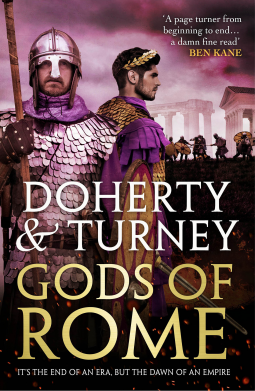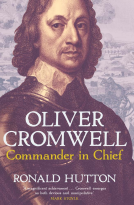
Gods of Rome
by Simon Turney; Gordon Doherty
This title was previously available on NetGalley and is now archived.
Send NetGalley books directly to your Kindle or Kindle app
1
To read on a Kindle or Kindle app, please add kindle@netgalley.com as an approved email address to receive files in your Amazon account. Click here for step-by-step instructions.
2
Also find your Kindle email address within your Amazon account, and enter it here.
Pub Date Mar 01 2022 | Archive Date Nov 30 2021
Aria & Aries | Head of Zeus -- an Aries Book
Talking about this book? Use #GodsofRome #NetGalley. More hashtag tips!
Description
For one to rule, the other must die.
AD 312: A year of horrific and brutal warfare.
Although outnumbered, Constantine's legions seem unstoppable as they surge through Maxentius' Italian heartlands. Constantine is determined to reach and seize the ancient capital of Rome from his rival, yet his army is exhausted, plagued by religious rivalries and on the verge of revolt. Maxentius meanwhile contends with a restive and dissenting Roman populace. Neither general can risk a prolonged war.
When the two forces clash amidst portents and omens in a battle that will shape history, there are factors at work beyond their control. Only one thing is certain: Constantine and Maxentius' rivalry must end. With one on a bloodied sword and the other the sole ruler of an Empire...
Praise for Gordon Doherty and Simon Turney:
'A page turner from beginning to end... A damn fine read' Ben Kane, author of Lionheart
'The Rise of Emperors series is first-rate Roman fiction. Doherty and Turney each breathe life into their respective characters with insight and humanity' Matthew Harffy, author of Wolf of Wessex
'A nuanced portrait of an intriguing emperor' The Times (on Turney's Commodus)
'A meticulously researched and vivid reimagining of an almost forgotten civilisation' Douglas Jackson, author of Hero of Rome (on Doherty's Empires of Bronze)
'An intriguing and highly polished piece of historical fiction' James Tivendale from Grimdark (on Sons of Rome)
Available Editions
| EDITION | Other Format |
| ISBN | 9781800242067 |
| PRICE | $29.95 (USD) |
| PAGES | 528 |
Featured Reviews
I have been looking forward to the conclusion of this trilogy ever since reading book one, and Gods of Rome finishes it off wonderfully. It is a true testament to the writers that while knowing the outcome at the beginning of book one, I still flew through this book rooting for the man I knew would lose the battle and the war. By not casting either Maxentius or Constantine as the hero or the villain, but just as men of their times, it allows you to understand how they ended up where there did. The best historical fiction opens a window that not only allows you an understanding of the events that occurred, but it gives you a connection to the people who lived at that time and this series does exactly that. Constantine's march on Rome, the planning, execution and use of his troops during battles is eye-opening to read, while also a horrifying look at the cost in lives. You also know the authors have done their jobs brilliantly when the first thing you do upon finishing is search all the main players in the story for more information about their lives and see just how far reaching their impact really was. You certainly do not have to have any background knowledge of this time to truly enjoy this series and learn a lot. I so thoroughly enjoyed this entire trilogy and cannot recommend it enough to anyone who is a fan of the time period or if you just want to learn more about these remarkable individuals.
Gods of Rome is book three in the series, and it culminates in the most glorious battle for Rome.
I've read and enjoyed the whole series now, which is no surprise as I'm a huge fan of historical fiction.
The strongest part of this enjoyable series for me has always been the two main characters, Constantine and Maxentius. Neither of them is portrayed as a typical hero or villain, but they are wonderfully flawed and so human. Both make good and bad decisions and have to go through difficult times. Their character development was a pleasure to read. Honestly, I wanted both of them to win because I liked them so much.
I#ve always been interested in history, so I knew the likely ending of the book before I started reading. But that is often the case in historical fiction, and for me, the journey is just as enjoyable as the conclusion. It's always interesting to see how authors solve problems and come up with their own take on the story. In this case, I had a rough idea of what would happen but didn't know too much about the time period. So I especially loved that I learned so much while reading an excellent book. You can really feel how well researched the series is and it transports you right back to ancient Rome.
The writing is excellent, and the two authors work perfectly together.
All in all, if you're interested in history and Rome, I highly recommend this series!
 Reviewer 703837
Reviewer 703837
This is the final book in the impressive trilogy and it has been patiently building to this moment - the decisive summer of 312AD. Alternating chapters follow Constantine and Maxentius (the Eastern candidate-Emperors, Licinius and Daia are left a bit out of the picture). It is a complex situation: all sense of ‘togetherness’ has vanished, every group, each individual seems self-divided, and true authority remains elusive.
As it opens it looks like Constantine has been dealt a bad hand - his army is split between pagan tribes (Petulantes) and Christian ones (Cornuti), his former friend Maxentius is now his firm enemy and knows his deep vulnerabilities, and even his wife (Maxentius’ sister) seems alienated from him. We soon learn things seem little better for his rival Maxentius, but it is Constantine that has to make a move to claim the imperial throne.
The trilogy is quite an achievement, as it focuses on the decade or so before 312 AD that historians have tended to avoid. It is a decade of jockeying for position with multiple contenders making simultaneous plays for complete power and brokering faithless peaces. But it is like a Mexican-standoff - lots of tension little direct action.
This is part of a recent historical fiction preference for such many-sided tussles. Strong recent examples are Fabbri’s series on Alexander’s Legacy series and Sidebottom’s Throne of the Caesars trilogy. I would say it has equal and opposed virtues to Goldsworthy’s novels. Goldsworthy excels and characterisation, dialogue, and localised events. Our authors not so much, but they have focused on the big narrative arcs and the grand historical scale.
So, given that theirs is a decade of stalemate, they have applied literary imagination to bring out the dramatic potential. They have drawn upon the Game of Thrones precedent for political/personal/continental manoeuvres (though we have also been trained by multi-player strategy games). So, our authors here have played up a love-hate relationship between Constantine and Maxentius, supposed former friends; they have balanced close-up focus (military detail and geographical precision) with big picture geo-strategy, and they have shown how Christianity had become a growing social force, spurned and persecuted, eve self-divided: its disruptive potential entirely misunderstood and mis-managed.
Naturally, the authors must have studied all kinds of sources to pin down the details. They don’t say so, but Rome’s Arch of Constantine must have been a key source. It shows the Petulantes joining the subsequent Triumph, which suggests they played a role in the fateful Battle of the Milvian Bridge. This final novel is about how Constantine must have got the pagan Petulantes on the same side as the Christian Cornuti.
 sue p, Reviewer
sue p, Reviewer
would like to thank netgalley and the publisher for letting me read this outstanding book
think Spartacus and vikings and you get how bloody and barbaric this book actually is..but its based on fact which i was astounded to read....
its a gruesome account of constantine and his battle to take back Rome, the battle scenes are legendary but its the betrayal around him that swings the battle towards the victor
interesting read though at times hard with all those strange names but was interested to see how it all ended though i could have cheated and googled it i wanted to see for myself
Readers who liked this book also liked:
Keith Martin; Konstantinos Mersinas; Guido Schmitz; Jassim Happa
Business, Leadership, Finance, Computers & Technology, Reference
Vincent B. "Chip" LoCoco
Historical Fiction, Horror, Mystery & Thrillers


















